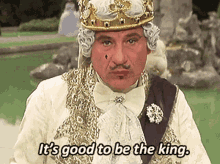The death of Queen Elizabeth II has sparked a days-long frenzy of pageantry and public displays of grief from members of the royal family, politicians and the people. But underneath all that lie some pretty mundane questions, including how much the queen was worth, who will inherit from her and how much tax they will pay.
The British monarchy’s fortune comes from a complicated mix of sources. Sovereigns’ wills are not made public, so no one knows exactly how much the queen was worth when she died or how she arranged for her assets to be distributed.
In 2021, Forbes estimated that she owned $500 million of personal assets and held nearly $28 billion in assets through the Crown Estate. The estate encompasses assets that belong to the monarch but that they cannot sell. Revenue from those assets largely go into public coffers, though the government disburses 25 percent of it back to the sovereign to cover their official expenses under a system known as the Sovereign Grant.
The sovereign and their heir do pay some forms of tax, but are largely spared from having to pay inheritance tax. The agreement determining how much inheritance tax they pay was determined about 30 years ago under Queen Elizabeth II and Charles, the Prince of Wales — now King Charles III.
The queen agreed to pay capital gains and income tax on her personal assets and on income derived from crown assets that was not used for official purposes. The agreement was intended to continue indefinitely.
However, gifts or bequests from one sovereign to another would be exempt from inheritance tax.
This means if the queen has bequeathed her estate to her son, he will not pay any inheritance tax on it.
King Charles is not exactly a tax dodger, however. For years, he paid a voluntary 45 percent income tax on his personal income from the Duchy of Cornwall, a billon-dollar holding of property across the country that belongs to the monarch’s heir, though he subtracts what he considers to be official expenditure.
The Duchy of Cornwall, which holds numerous British landmarks, including a storied London cricket ground and a notorious prison, is roughly 205 square miles — or around 0.2 percent of all British land, It reported over $50 million in revenue last year, with profits of almost $25 million.
With the death of the queen, the Duchy of Cornwall has passed to Prince William.
The British monarchy’s fortune comes from a complicated mix of sources. Sovereigns’ wills are not made public, so no one knows exactly how much the queen was worth when she died or how she arranged for her assets to be distributed.
In 2021, Forbes estimated that she owned $500 million of personal assets and held nearly $28 billion in assets through the Crown Estate. The estate encompasses assets that belong to the monarch but that they cannot sell. Revenue from those assets largely go into public coffers, though the government disburses 25 percent of it back to the sovereign to cover their official expenses under a system known as the Sovereign Grant.
The sovereign and their heir do pay some forms of tax, but are largely spared from having to pay inheritance tax. The agreement determining how much inheritance tax they pay was determined about 30 years ago under Queen Elizabeth II and Charles, the Prince of Wales — now King Charles III.
The queen agreed to pay capital gains and income tax on her personal assets and on income derived from crown assets that was not used for official purposes. The agreement was intended to continue indefinitely.
However, gifts or bequests from one sovereign to another would be exempt from inheritance tax.
This means if the queen has bequeathed her estate to her son, he will not pay any inheritance tax on it.
King Charles is not exactly a tax dodger, however. For years, he paid a voluntary 45 percent income tax on his personal income from the Duchy of Cornwall, a billon-dollar holding of property across the country that belongs to the monarch’s heir, though he subtracts what he considers to be official expenditure.
The Duchy of Cornwall, which holds numerous British landmarks, including a storied London cricket ground and a notorious prison, is roughly 205 square miles — or around 0.2 percent of all British land, It reported over $50 million in revenue last year, with profits of almost $25 million.
With the death of the queen, the Duchy of Cornwall has passed to Prince William.


